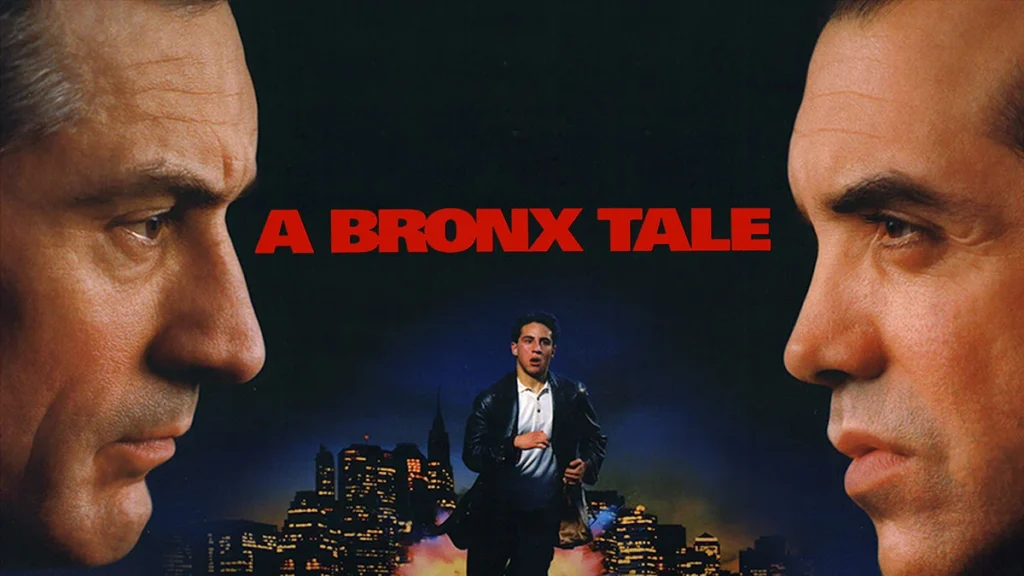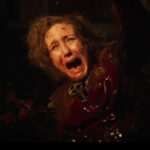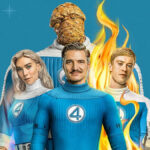If you’re a fan of the classic coming-of-age crime drama A Bronx Tale, directed by and starring Robert De Niro, you’re probably on the lookout for more gritty, compelling movies that explore similar themes and settings. A Bronx Tale brilliantly captures the allure and danger of the mob life through the eyes of a young man torn between following in the footsteps of his hardworking bus driver father or a charismatic local crime boss.
The film is set against the backdrop of racial tensions and social upheaval in the 1960s Bronx. It’s a powerful, moving story that has resonated with audiences for decades. If you loved A Bronx Tale and are craving more movies in the same vein, look no further. Here are 15 must-see films that capture a similar spirit, tone, and themes.
1. Brother (2000)
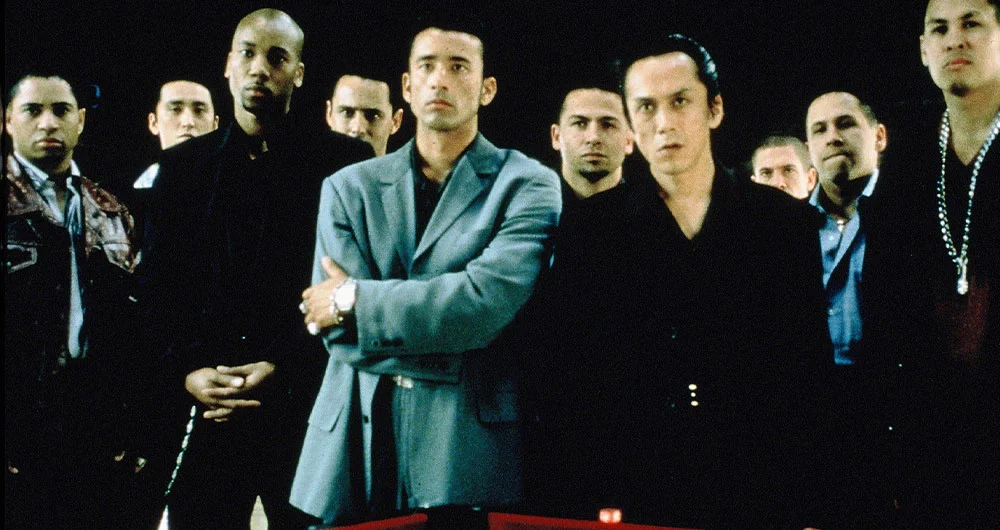
‘Brother’ is a 2000 crime drama film directed by Takeshi Kitano that explores themes of loyalty and redemption within the context of the yakuza and its emotional impact on familial relationships. The film follows Yamamoto, a yakuza enforcer who is forced to flee Japan after his clan disbands following a brutal gang war. Exiled in Los Angeles, he reconnects with his younger half-brother Ken, who is running a small-time drug crew with a multicultural group of friends. As Yamamoto reintegrates into his brother’s life, he attempts to teach the gang discipline and purpose, bringing a traditional yakuza way of life into a contemporary setting.
The film blends crime drama with deeper emotional resonance, making it a complex story about loyalty, belonging, and the search for redemption in a volatile environment. With its themes of family, loyalty, and the clash of cultures, Brother is a gritty and powerful film that shares many similarities with A Bronx Tale, despite its different setting and cultural context.
2. Casino (1995)

‘Casino,’ directed by Martin Scorsese and released in 1995, is a crime drama that intricately explores the glamorous yet brutal world of Las Vegas during the 1970s and 80s. The story revolves around Sam “Ace” Rothstein, portrayed by Robert De Niro, who is tasked by the mob to run the Tangiers Casino, a front for their illegal operations. Accompanying him is his childhood friend Nicky Santoro, played by Joe Pesci, whose violent tendencies threaten the stability of their empire. The film weaves a complex narrative, showcasing themes of greed, loyalty, and betrayal, as Rothstein’s dreams of success spiral into chaos due to his tumultuous relationship with Ginger McKenna, a hustler played by Sharon Stone.
‘Casino’ not only delves into the personal lives of its characters but also critiques the underlying corruption and moral decay within the gambling industry, creating a poignant reflection on excess and downfall. The film stands as a powerful examination of how ambition can lead to one’s destruction, drawing parallels to the struggles depicted in ‘A Bronx Tale.’
3. Donnie Brasco (1997)

Donnie Brasco (1997) is a crime drama that dives deep into the murky waters of organized crime and the personal sacrifices made by individuals ensnared in a world of deception and loyalty. The film stars Johnny Depp as Joe Pistone, an undercover FBI agent who assumes the identity of Donnie Brasco to infiltrate the mob. Throughout the narrative, it explores themes of identity, loyalty, and the moral dilemmas faced by those who walk the delicate line between law enforcement and criminality. This coming-of-age story reflects the personal transformation of Pistone as he forms a close bond with mobster Lefty Ruggiero, played by Al Pacino, revealing the human side of a world often portrayed as purely violent and ruthless.
Set against the backdrop of 1970s organized crime in New York City, the film is visually compelling and powerfully emotional. The tumultuous nature of their relationship mirrors the father-son dynamic found in ‘A Bronx Tale’, resonating with viewers who appreciate layered characters and complex storytelling.
4. Once Upon a Time in America (1984)

Once Upon a Time in America (1984) is an epic crime drama directed by Sergio Leone, focusing on the lives of Jewish gangsters in New York over five decades, primarily revolving around the character David “Noodles” Aaronson, portrayed by Robert De Niro. The film intricately weaves narrative threads spanning three key periods: the formative years of Noodles and his friends in the 1920s, their rise to criminal prominence during the Prohibition era, and Noodles’ return in 1968 as an older man reflecting on his past choices. Themes of camaraderie, ambition, betrayal, and the elusive American Dream are central, as characters navigate their aspirations amidst the stark realities of crime and violence.
Acknowledged for its ambitious scope and complexity, ‘Once Upon a Time in America’ remains a gripping exploration of moral ambiguity and the passage of time, encapsulating the harsh truths of its characters’ lives while laying bare the profound impact of their choices on their fates and those around them, rendering it a classic worth experiencing.
5. The Godfather (1972)
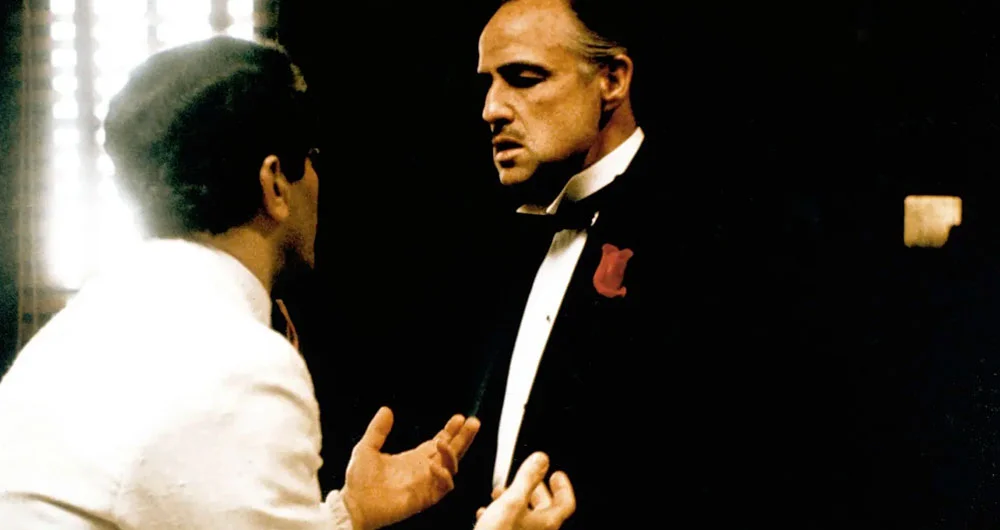
‘The Godfather’ (1972), directed by Francis Ford Coppola, is a landmark in American cinema and often regarded as one of the greatest films of all time. The story follows the powerful Corleone crime family, particularly patriarch Vito Corleone, portrayed by Marlon Brando, and his youngest son, Michael, played by Al Pacino. Set against the backdrop of post-World War II America, the film delves into the intricacies of family loyalty, power struggles, and the American Dream through the lens of organized crime. The narrative explores how Michael, initially an outsider to the family’s illicit operations, is gradually drawn into the criminal world, ultimately becoming a key figure in the mafia.
The Godfather is renowned for its rich character development, compelling storytelling, and powerful performances, especially by Brando and Pacino. It addresses themes such as morality, justice, and the impact of crime on family and personal relationships. The film’s iconic lines, memorable scenes, and haunting score by Nino Rota have solidified its status in pop culture.
6. Mean Streets (1973)
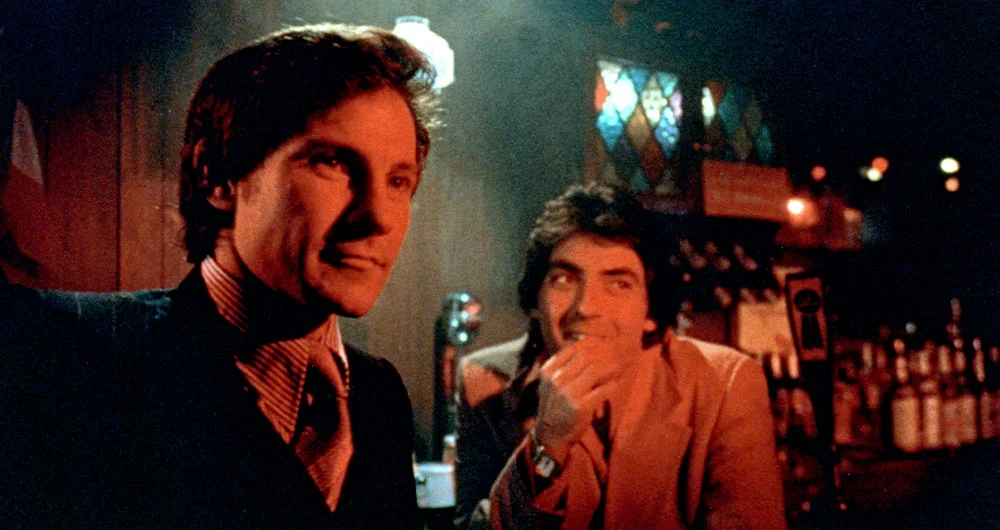
“Mean Streets” (1973), directed by Martin Scorsese, is a seminal American crime drama that explores the lives of small-time criminals in New York City’s Little Italy. The film’s protagonist, Charlie Cappa, portrayed by Harvey Keitel, grapples with his aspirations to become a part of the mafia while being burdened by Catholic guilt and moral dilemmas. He finds himself entangled in the chaotic life of Johnny Boy, played by Robert De Niro, a reckless gambler whose actions place them both in peril. The film examines themes of loyalty, redemption, and the struggle for identity in a world that seems to offer only despair and violence.
As Charlie navigates his responsibilities to his family and his community, he faces the harsh realities of life intertwined with crime, leading to a poignant examination of morality and the complexity of human relationships. Ultimately, “Mean Streets” stands as a powerful commentary on the choices one makes in a corrupt society, reflecting the director’s unique vision and establishing him as a pivotal figure in American cinema.
7. Sleepers (1996)

“Sleepers” is a 1996 American legal crime drama film directed by Barry Levinson, based on Lorenzo Carcaterra’s 1995 novel. Set in the late 1960s and early 1980s, it tells the harrowing story of four young boys from Hell’s Kitchen who, after a prank goes wrong, are sent to a brutal juvenile detention center. There, they experience severe physical and sexual abuse at the hands of the guards. The film explores themes of friendship, trauma, and the quest for vengeance. As adults, the boys come together to confront their past when they encounter one of their abusers. The narrative unfolds through the lens of both their childhood experiences and the repercussions that haunt them into adulthood.
The film delves into the character dynamics and the devastating impact of their shared trauma, making it a powerful commentary on childhood innocence and the cyclical nature of violence. Its gritty portrayal of life in a tough neighborhood resonates with audiences who appreciate intense dramas that tackle hard-hitting social issues, similar to the thematic undertones found in “A Bronx Tale.”
8. Taxi Driver (1976)

“Taxi Driver” is a 1976 film directed by Martin Scorsese that follows the story of Travis Bickle, played by Robert De Niro, who is a mentally unstable Vietnam War veteran. Struggling with acute isolation and insomnia, Travis becomes a nighttime taxi driver in New York City, where he becomes increasingly disturbed by the urban decay and corruption surrounding him. The film is set against the backdrop of a city rife with crime, and it delves deep into themes of loneliness, alienation, and the impact of war on the psyche. Travis finds solace in his job, but his encounters with various passengers and the seedy underbelly of the city fuel his growing discontent.
“Taxi Driver” is recognized for its brutally honest portrayal of a man struggling to connect with society, making it a poignant exploration of personal and societal breakdown, reflected in Travis’s famous line, “You talkin’ to me?” The film is often cited as one of the greatest movies ever made, marking a high point in American cinema and highlighting the complexities of morality and mental health in an urban environment.
9. The Outsiders (1983)

“The Outsiders” is a 1983 American coming-of-age crime drama directed by Francis Ford Coppola, adapted from S.E. Hinton’s novel. Set in the 1960s in Tulsa, Oklahoma, it follows Ponyboy Curtis, a young greaser from the poor side of town, who struggles with issues of identity, loyalty, and class conflict. The film captures the rivalry between two groups of teenagers: the Greasers, representing the working class, and the Socs, the affluent socialites. This dynamic is emphasized through character-driven narratives that explore friendship and loss amidst societal pressures.
Ponyboy’s journey begins with him being attacked by Socs, which propels him deeper into the gang’s conflicts and ultimately leads to tragedies that change his and his companions’ lives forever. The film’s lasting impact is underscored by its cultural significance, attracting diverse audiences drawn to its timeless themes of youth, rebellion, and the quest for understanding across class divides.
10. The Pope of Greenwich Village (1984)
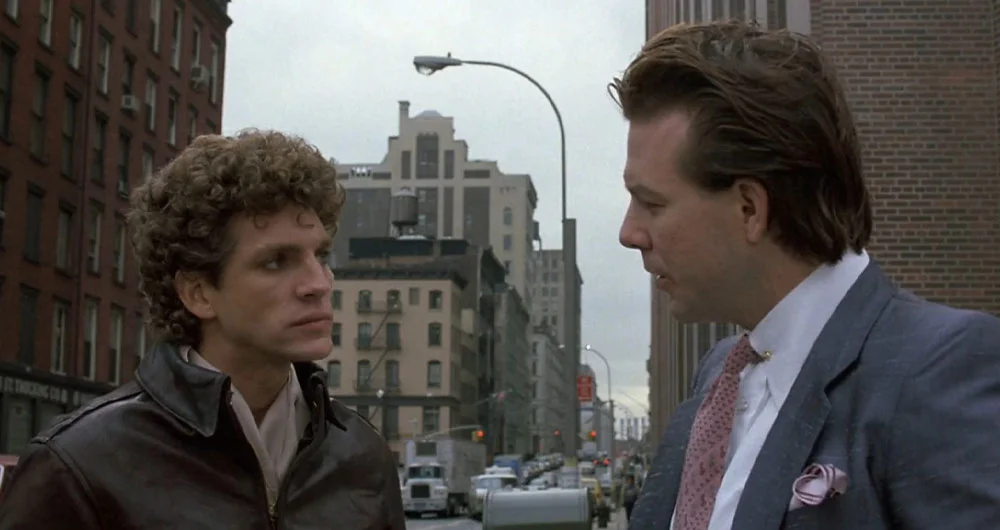
“The Pope of Greenwich Village” is a 1984 crime drama that captures the struggles of two cousins, Charlie (Mickey Rourke) and Paulie (Eric Roberts), living in New York’s Little Italy. The film presents a darkly humorous narrative infused with the complexities of dreams versus reality as the pair attempts to achieve a better life through a harebrained robbery. Unbeknownst to them, they engage in an elaborate scheme that targets the mob, leading to dire consequences and dangerous encounters with organized crime. The plot follows their attempts to pull off a $150,000 heist to invest in a racehorse, believed to be a guaranteed winner, reflecting themes of ambition, loyalty, and betrayal within a tightly-knit, culturally rich neighborhood.
With its gritty setting, the film resonates with viewers seeking narratives that explore themes of familial bonds, the allure of crime, and the pursuit of the American Dream within immigrant communities. Noted for its engaging performances by Rourke and Roberts, the film remains a poignant reflection on aspirations shaped by both hope and desperation.
11. Goodfellas (1990)

Goodfellas, directed by Martin Scorsese and released in 1990, is a crime film that chronicles the true story of Henry Hill, an aspiring gangster who finds himself navigating the complex world of organized crime. Spanning from 1955 to 1980, the narrative encapsulates Henry’s rise within the Lucchese crime family and his eventual fall from grace. The film explores themes of loyalty, betrayal, and the consequences of a life steeped in crime. Through stunning cinematography and a dynamic soundtrack, Scorsese immerses viewers in the gritty reality of mob life, highlighting the allure of power and wealth that ultimately leads to doom. The film’s aesthetic mirrors that of a polished crime drama while exposing the raw brutality underpinning Henry’s lifestyle.
Key characters include Tommy DeVito and Jimmy Conway, whose violent exploits showcase the tragic cycle of ambition and retribution that characterizes the underworld. With its stylistic brilliance and gripping storytelling, Goodfellas ranks as one of the greatest films in cinematic history for its realistic portrayal of the American mafia experience.
12. Hoffa (1992)
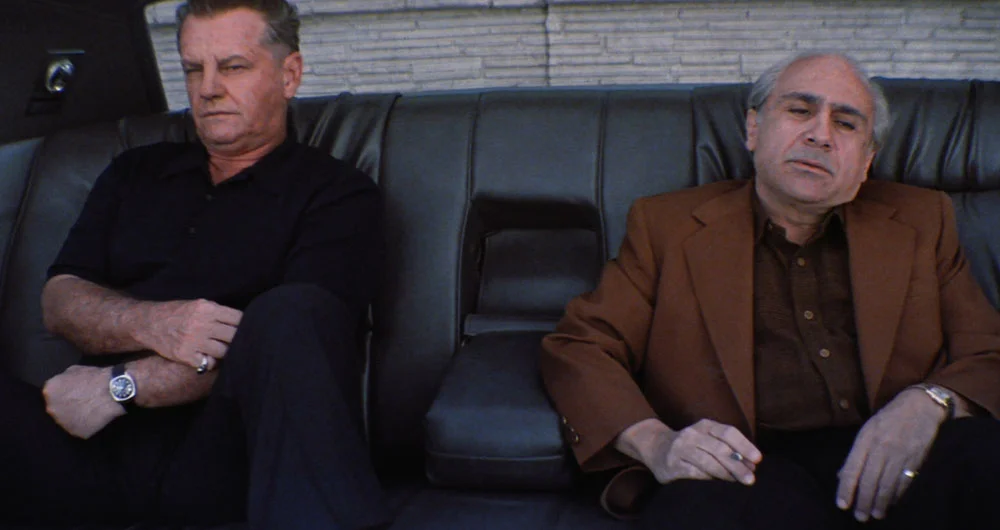
Hoffa is a biographical crime drama film directed by Danny DeVito and released in 1992, delving into the life of union leader Jimmy Hoffa, portrayed by Jack Nicholson. The film explores Hoffa’s tumultuous journey as he rises to prominence within the Teamsters union, navigating the treacherous waters of labor negotiations, political maneuvering, and organized crime. Hoffa is depicted as a fiercely dedicated yet controversial figure, whose passionate efforts to secure workers’ rights often lead him into conflict with powerful adversaries, including Attorney General Robert Kennedy. The film is notable for its stylized direction and sharp dialogue, characteristic of David Mamet’s screenplay.
Though it presents a largely fictional portrayal of real events, Hoffa captures the essence of a labor movement era fraught with tension between workers and authority. Despite mixed critical reception, the film remains significant for its exploration of ambition and morality in the context of American labor history.
13. Carlito’s Way (1993)

Carlito’s Way (1993) is a crime drama directed by Brian De Palma, starring Al Pacino as Carlito Brigante, a Puerto Rican former drug dealer recently released from prison. Following a five-year sentence out of a thirty-year term, Carlito aims to go straight and save money to retire in a more peaceful place. The film showcases his struggle to disentangle himself from his former life as he confronts the temptations and pressures posed by old associates and his corrupt lawyer, Dave Kleinfeld (Sean Penn). Carlito’s journey is marked by his attempts to manage a nightclub, rekindle a romance with his old flame Gail (Penelope Ann Miller), and avoid falling back into a life of crime, ultimately leading to tension-filled encounters with other criminals.
Despite his good intentions and desire for redemption, Carlito’s efforts are thwarted by the very world he tried to leave behind, culminating in an emotionally charged narrative that balances tension and moral complexity. The film melds gritty realism with a poignant exploration of character, making it a standout in gangster cinema.
14. The Godfather Part III (1990)
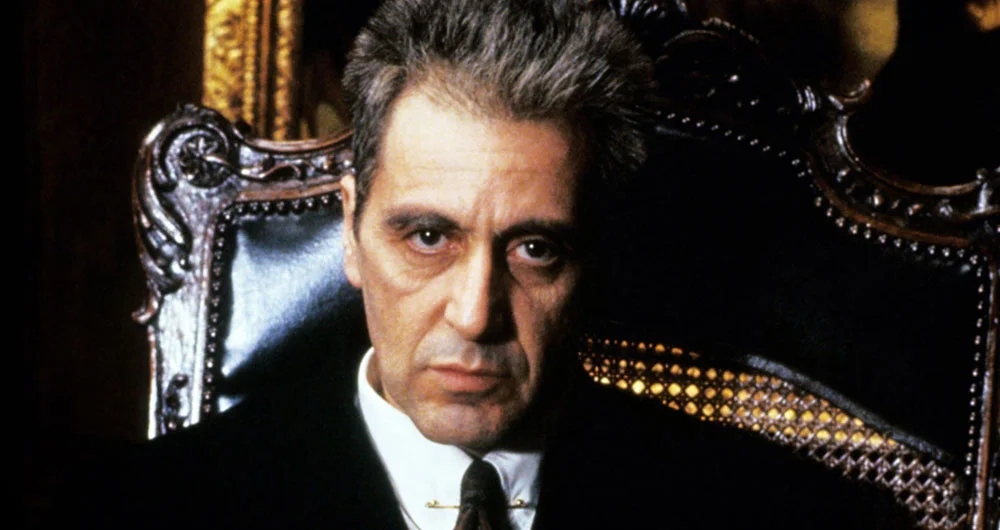
The Godfather Part III, directed by Francis Ford Coppola, continues the saga of Michael Corleone, portrayed by Al Pacino, who is now in his sixties. The film is set in 1979 and explores themes of redemption, legacy, and the insidious nature of crime. Michael, attempting to secure his family’s future by legitimizing his criminal empire, faces the haunting consequences of his past actions. The narrative intertwines personal and professional struggles, showcasing Michael’s effort to distance himself from a violent lifestyle while still being tethered by familial ties. Central to the plot is Michael’s relationship with his daughter, Mary (played by Sofia Coppola), as he grapples with guilt over decisions that impact her life.
The film features a complex narrative filled with betrayal, ambition, and moral dilemmas, reflecting a Shakespearean tragedy as Michael’s attempts to control his destiny lead to inevitable tragedy. The film also touches on real-life events such as the Papal banking scandal, adding layers to its historical context.
15. The Wanderers (1979)
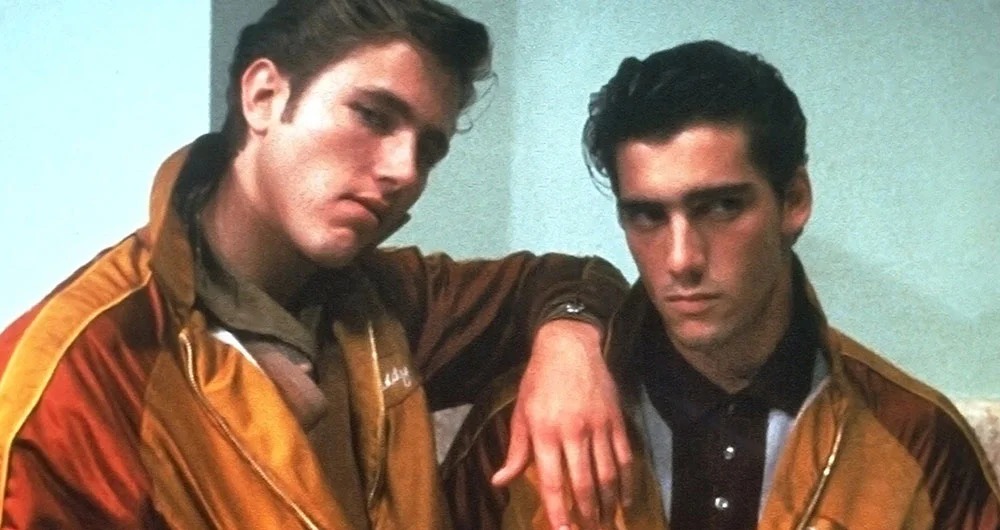
The Wanderers, directed by Philip Kaufman and released in 1979, is a coming-of-age film set in the Bronx in 1963, revolving around a group of Italian-American teenagers who form a gang called the Wanderers. The narrative unfolds against the backdrop of rival gangs, such as the Baldies and the Del Bombers, highlighting themes of friendship, loyalty, and the adolescent struggle for identity amidst the turbulence of urban street life. The film captures the essence of the era through its vibrant 1950s rock and roll soundtrack, pivotal gang confrontations, and poignant moments of personal growth among the gang members.
Through a blend of humor and drama, the film presents a genuine portrayal of teenage life, striking a balance between depicting the harsh realities of gang culture and moments of light-heartedness. The film stands as a nostalgic homage to a bygone era of youthful defiance, ultimately resonating with audiences due to its universal themes of belonging and resilience in the face of adversity.
These 15 films all capture, in their own unique ways, the spirit and themes of A Bronx Tale. From the mean streets of New York to the ghettos of Los Angeles, they tell stories of young men trying to find their way in a world that seems stacked against them. They grapple with questions of loyalty, honor, ambition, and identity. And they paint vivid, unforgettable portraits of American life on the margins.
Whether you’re a die-hard fan of A Bronx Tale or simply appreciate powerful, gritty cinema, these films are essential viewing. They represent some of the best that the crime and coming-of-age genres have to offer, and they remind us of the enduring power of storytelling to illuminate even the darkest corners of the human experience. So grab some popcorn, dim the lights, and prepare to be transported to a world that is at once terrifying and captivating, brutal and beautiful. These are movies that will stay with you long after the credits roll.
